10 Best Herbal Decoctions For Jaundice

Herbal decoctions have been traditionally used in various cultures to treat jaundice, a condition characterized by yellowing of the skin and eyes due to elevated bilirubin levels.
Commonly used herbs include dandelion, milk thistle, and turmeric, which are believed to support liver function and promote detoxification. These decoctions are typically prepared by boiling the dried herbs in water for an extended period to extract their active compounds. While some studies suggest potential benefits, it is important to consult a healthcare professional before using herbal treatments, as they may interact with medications or have side effects.
Overall, herbal decoctions can be a complementary approach to conventional treatments for jaundice, but should not replace medical advice.
Table of Contents
- 1. Thistle (Silybum marianum)
- 2. Turmeric (Curcuma longa)
- 3. Sweet wormwood (Artemisia annua)
- 4. Ginger (Zingiber officinale)
- 5. False leaf (Phyllanthus amarus)
- 6. Indian barberry (Berberis aristata)
- 7. Licorice (Glycyrrhiza glabra)
- 8. Rhubarb (Rheum palmatum)
- 9. Moringa tree (Moringa oleifera)
- 10. Coltsfoot (Tussilago farfara)
1. Thistle (Silybum marianum)

Silybum marianum, commonly known as milk thistle, has been traditionally used in herbal medicine for its potential hepatoprotective properties.
Its active constituent, silymarin, is believed to support liver function and may help in the treatment of jaundice by promoting the regeneration of liver cells. Herbal decoctions of Silybum marianum are often prepared by soaking the seeds in water and simmering them to extract the beneficial compounds. These decoctions are thought to aid in detoxification and may help reduce the buildup of bilirubin, a key factor in jaundice.
However, while some studies suggest its efficacy, more clinical research is needed to fully establish its role in managing jaundice as a standalone or complementary therapy.
2. Turmeric (Curcuma longa)

Curcuma longa, commonly known as turmeric, has been traditionally used in herbal medicine for its potential benefits in treating jaundice, a condition characterized by yellowing of the skin and eyes due to elevated bilirubin levels.
Herbal decoctions made from the rhizomes of Curcuma longa are believed to support liver function and promote the detoxification process, aiding in the reduction of bilirubin buildup. The active compound curcumin in turmeric possesses anti-inflammatory and antioxidant properties that may help in improving liver health and enhancing bile production. These decoctions are often prepared by boiling the dried rhizomes in water and consumed as a tea or added to meals, though their efficacy should be supported by scientific research.
While some studies suggest potential therapeutic effects, it is important to consult a healthcare professional before using turmeric decoctions as a treatment for jaundice, especially in severe cases.
3. Sweet wormwood (Artemisia annua)
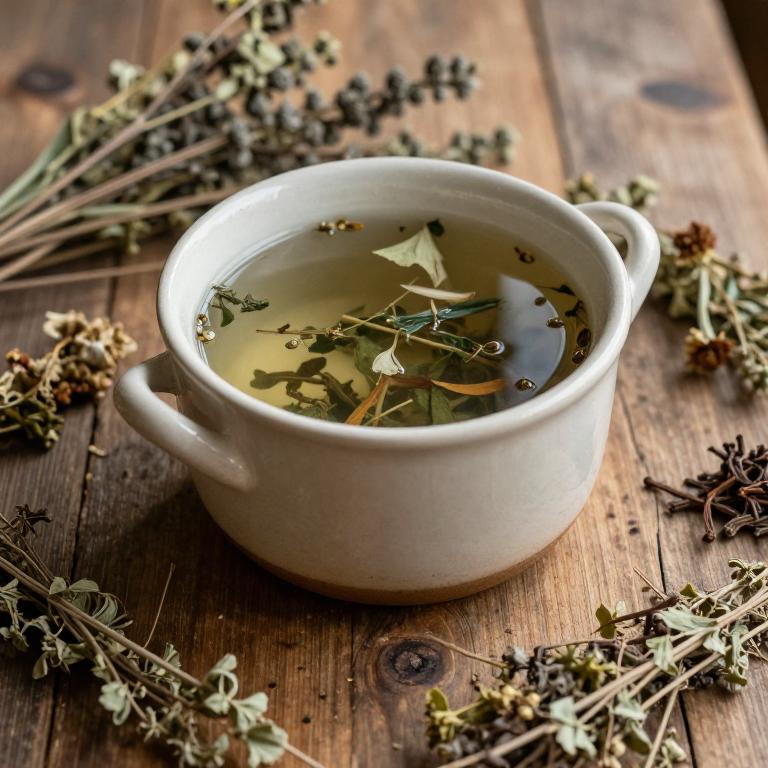
Artemisia annua, commonly known as sweet wormwood, has been traditionally used in Chinese medicine for its potential therapeutic effects on jaundice, a condition characterized by yellowing of the skin and eyes due to elevated bilirubin levels.
The herbal decoctions derived from this plant contain active compounds such as artemisinin, which have demonstrated hepatoprotective properties that may support liver function and aid in the detoxification process. These decoctions are often prepared by boiling the dried leaves and stems of Artemisia annua in water, resulting in a bitter-tasting infusion that is consumed regularly as part of a therapeutic regimen. While some studies suggest that Artemisia annua may help reduce bilirubin levels and improve liver health, it is important to consult with a healthcare professional before using it for medical conditions, as it may interact with other medications or have side effects.
Overall, Artemisia annua herbal decoctions are considered a traditional remedy for jaundice, though their efficacy and safety should be evaluated within a broader medical context.
4. Ginger (Zingiber officinale)

Zingiber officinale, commonly known as ginger, has been traditionally used in herbal medicine for its potential therapeutic effects on various health conditions, including jaundice.
Herbal decoctions made from fresh or dried ginger roots are believed to support liver function and promote the detoxification process, which may aid in the management of jaundice symptoms. These decoctions are typically prepared by boiling the ginger in water for several minutes, allowing the active compounds such as gingerols and shogaols to be extracted. While some studies suggest that ginger may have mild hepatoprotective properties, it is important to consult a healthcare professional before using ginger decoctions as a treatment for jaundice, as the condition can have multiple underlying causes.
Overall, ginger herbal decoctions may complement conventional treatments but should not replace medical advice or therapy for jaundice.
5. False leaf (Phyllanthus amarus)
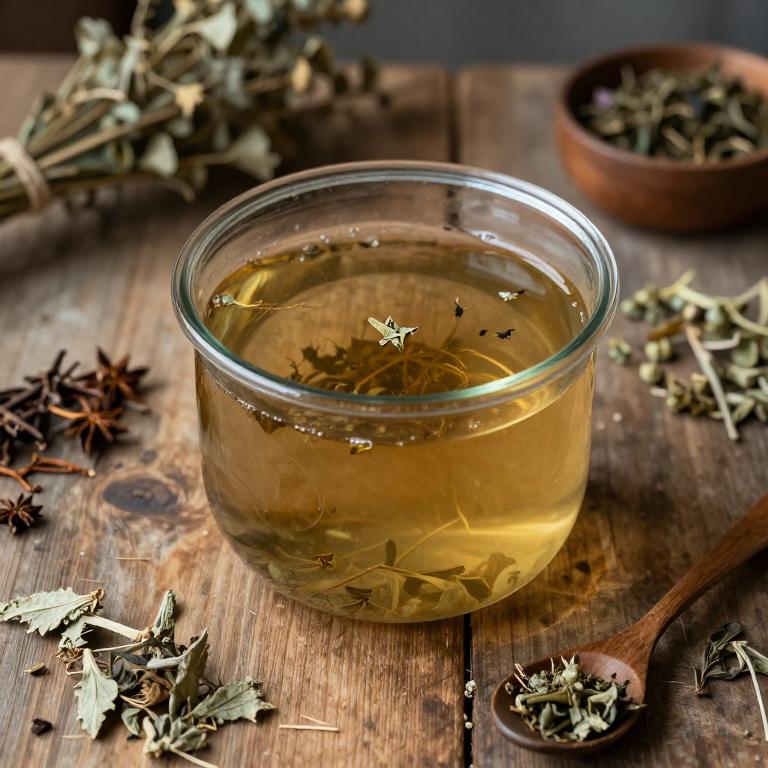
Phyllanthus amarus, commonly known as "stonebreaker," is a traditional herbal remedy widely used in Ayurvedic and African medicine for its hepatoprotective properties.
Herbal decoctions made from the leaves and seeds of Phyllanthus amarus are believed to support liver function and aid in the treatment of jaundice by promoting the detoxification process and reducing bilirubin levels in the blood. These decoctions are typically prepared by boiling the dried plant material in water for several hours, allowing the active compounds to be extracted. The plant contains bioactive constituents such as flavonoids, saponins, and alkaloids, which are thought to contribute to its therapeutic effects on liver health.
While some clinical studies suggest potential benefits, more research is needed to fully validate its efficacy and safety for treating jaundice.
6. Indian barberry (Berberis aristata)
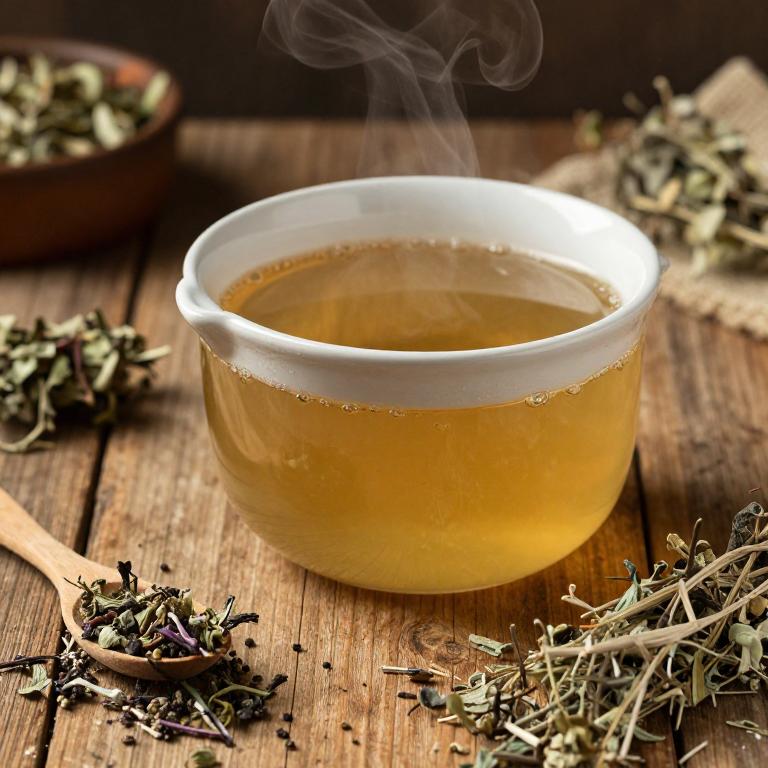
Berberis aristata, commonly known as Indian barberry, contains berberine, a potent alkaloid with antimicrobial and anti-inflammatory properties.
Herbal decoctions made from the roots of Berberis aristata have been traditionally used in Ayurvedic medicine to treat jaundice, a condition characterized by yellowing of the skin and eyes due to elevated bilirubin levels. These decoctions are believed to support liver function and promote the excretion of bilirubin by improving bile flow and reducing hepatic inflammation. Studies suggest that berberine may help in detoxifying the liver and enhancing its ability to process and eliminate toxins.
However, while some traditional remedies use Berberis aristata for jaundice, it is important to consult a healthcare professional before using it as a treatment, as it may interact with certain medications and is not a substitute for conventional medical care.
7. Licorice (Glycyrrhiza glabra)

Glycyrrhiza glabra, commonly known as licorice root, has been traditionally used in herbal medicine for its potential hepatoprotective properties.
Herbal decoctions made from Glycyrrhiza glabra are believed to support liver function and may aid in the management of jaundice by promoting bile production and detoxification. The active compounds in licorice root, such as glycyrrhizin and flavonoids, are thought to reduce inflammation and oxidative stress in the liver. However, excessive use of licorice root can lead to side effects like hypertension and electrolyte imbalances, so it should be used under professional guidance.
While some studies suggest its efficacy in supporting liver health, more research is needed to confirm its role in treating jaundice specifically.
8. Rhubarb (Rheum palmatum)
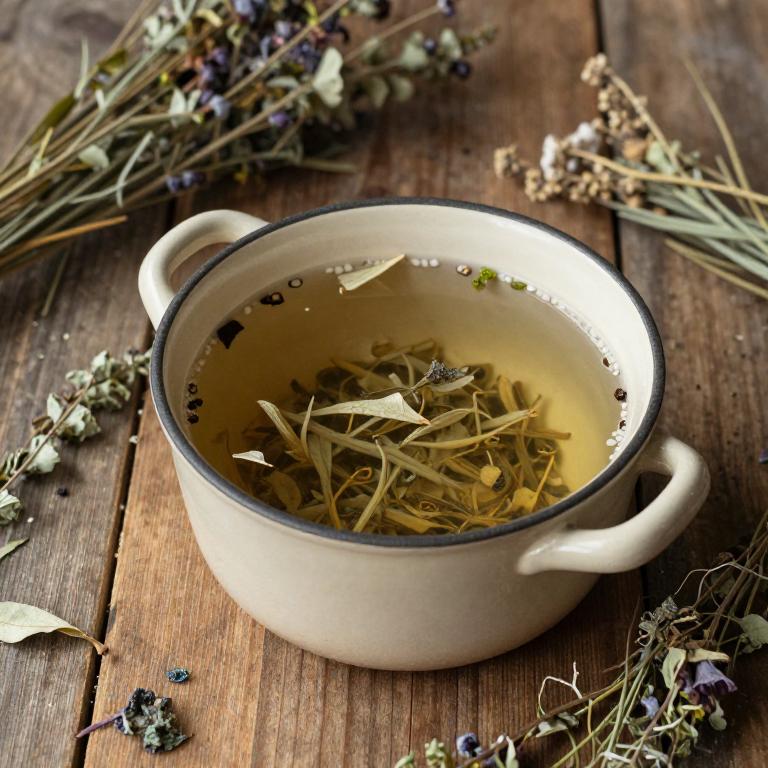
Rheum palmatum, also known as Chinese rhubarb, is commonly used in traditional Chinese medicine for its purgative and detoxifying properties.
Herbal decoctions made from Rheum palmatum are often employed in the treatment of jaundice due to their ability to promote bile secretion and detoxify the liver. These decoctions typically contain a combination of herbs that work synergistically to improve liver function and reduce bilirubin levels in the blood. The active compounds in Rheum palmatum, such as anthraquinones, help in eliminating toxins and supporting the body's natural cleansing processes.
However, it is important to use these decoctions under the guidance of a qualified practitioner to avoid potential side effects and ensure proper dosage.
9. Moringa tree (Moringa oleifera)
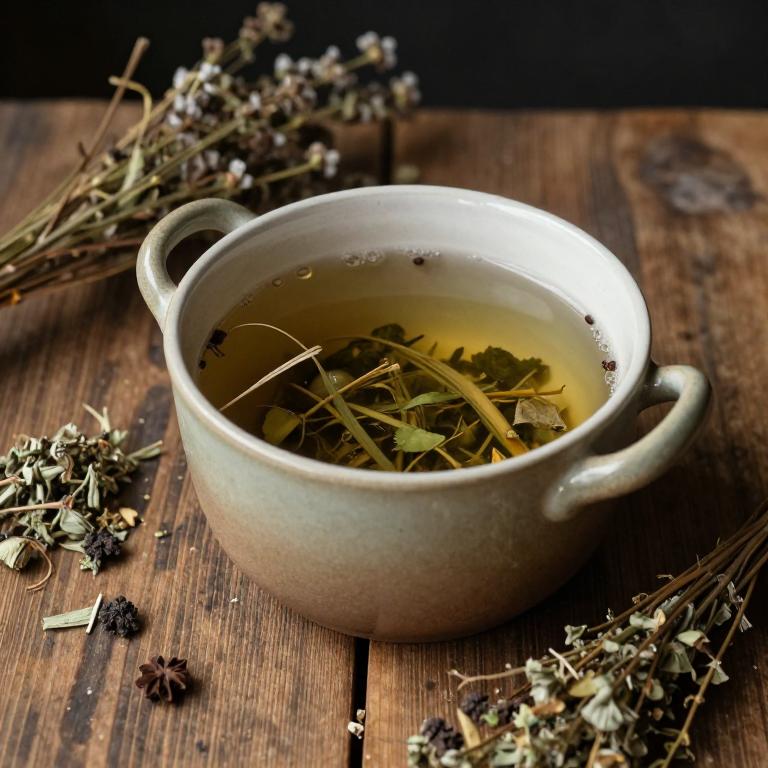
Moringa oleifera, commonly known as the drumstick tree, has been traditionally used in herbal medicine for its numerous health benefits, including the treatment of jaundice.
Herbal decoctions made from the leaves, seeds, and bark of Moringa oleifera are believed to support liver function and aid in the detoxification process. These decoctions contain bioactive compounds such as flavonoids, phenolic acids, and vitamins that may help reduce bilirubin levels and promote the regeneration of liver cells. Studies suggest that Moringa oleifera may have hepatoprotective properties that could assist in managing symptoms of jaundice.
However, while preliminary research is promising, more clinical trials are needed to fully establish its efficacy and safety in treating jaundice.
10. Coltsfoot (Tussilago farfara)

Tussilago farfara, commonly known as coltsfoot, has been traditionally used in herbal medicine for its potential therapeutic effects, including the treatment of jaundice.
The plant contains bioactive compounds such as flavonoids and mucilage, which may support liver function and aid in the detoxification process. Herbal decoctions made from the leaves and flowers of Tussilago farfara are prepared by simmering the dried plant material in water for several hours. These decoctions are believed to help alleviate symptoms of jaundice by promoting bile production and improving hepatic metabolism.
However, it is important to consult with a qualified healthcare provider before using coltsfoot for jaundice, as it may interact with certain medications and is not a substitute for conventional medical treatment.